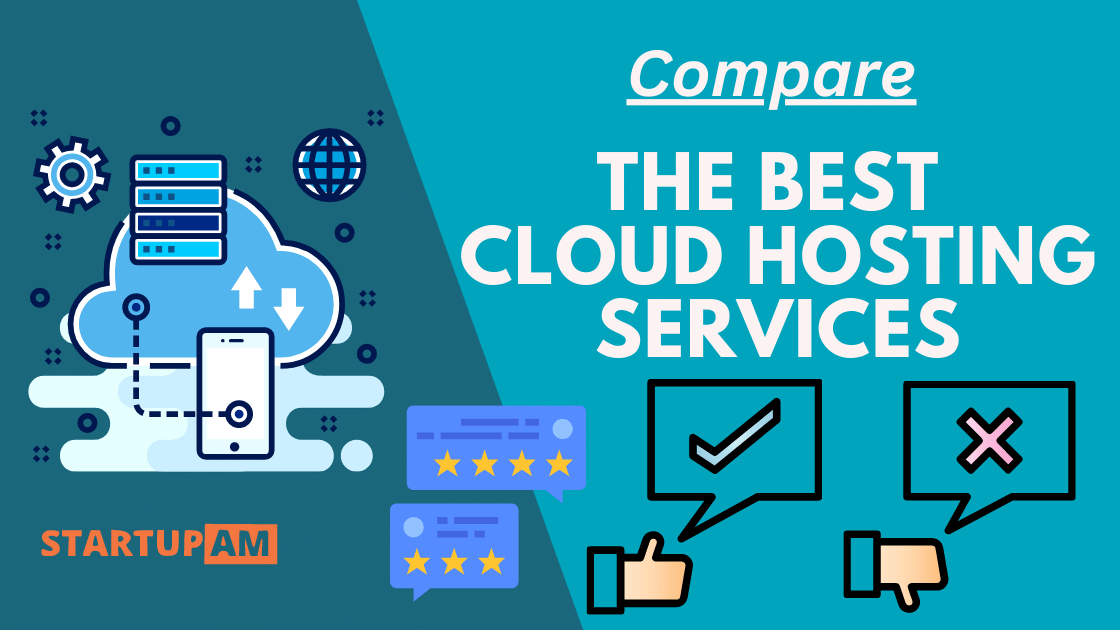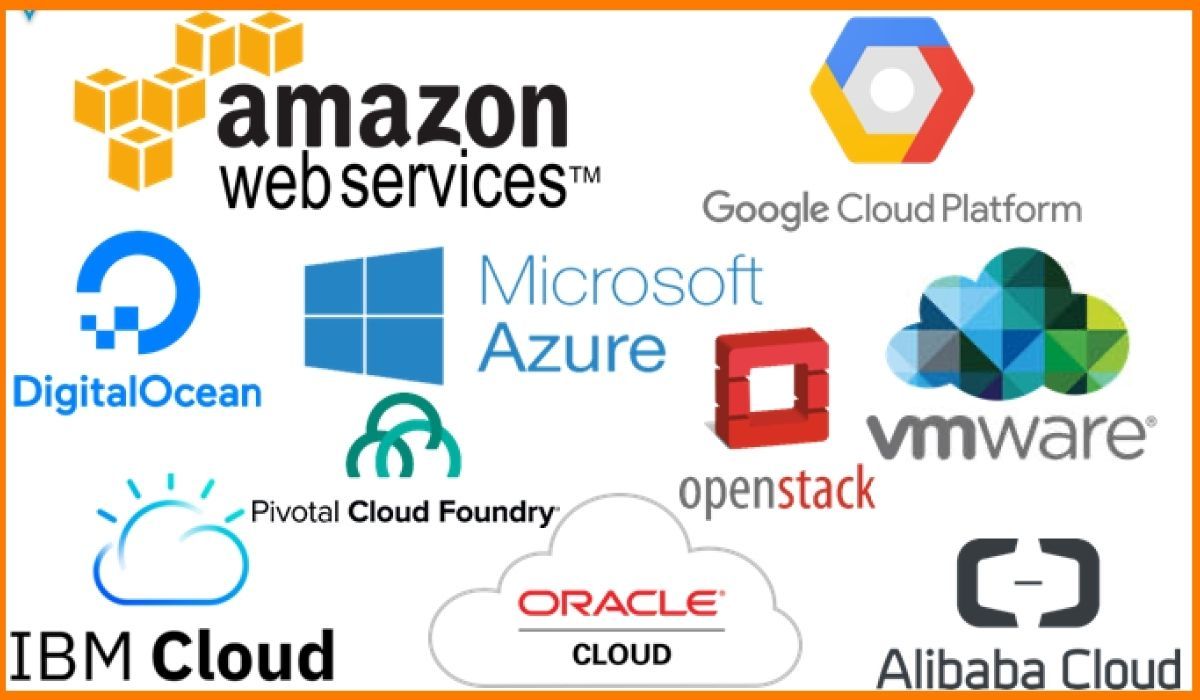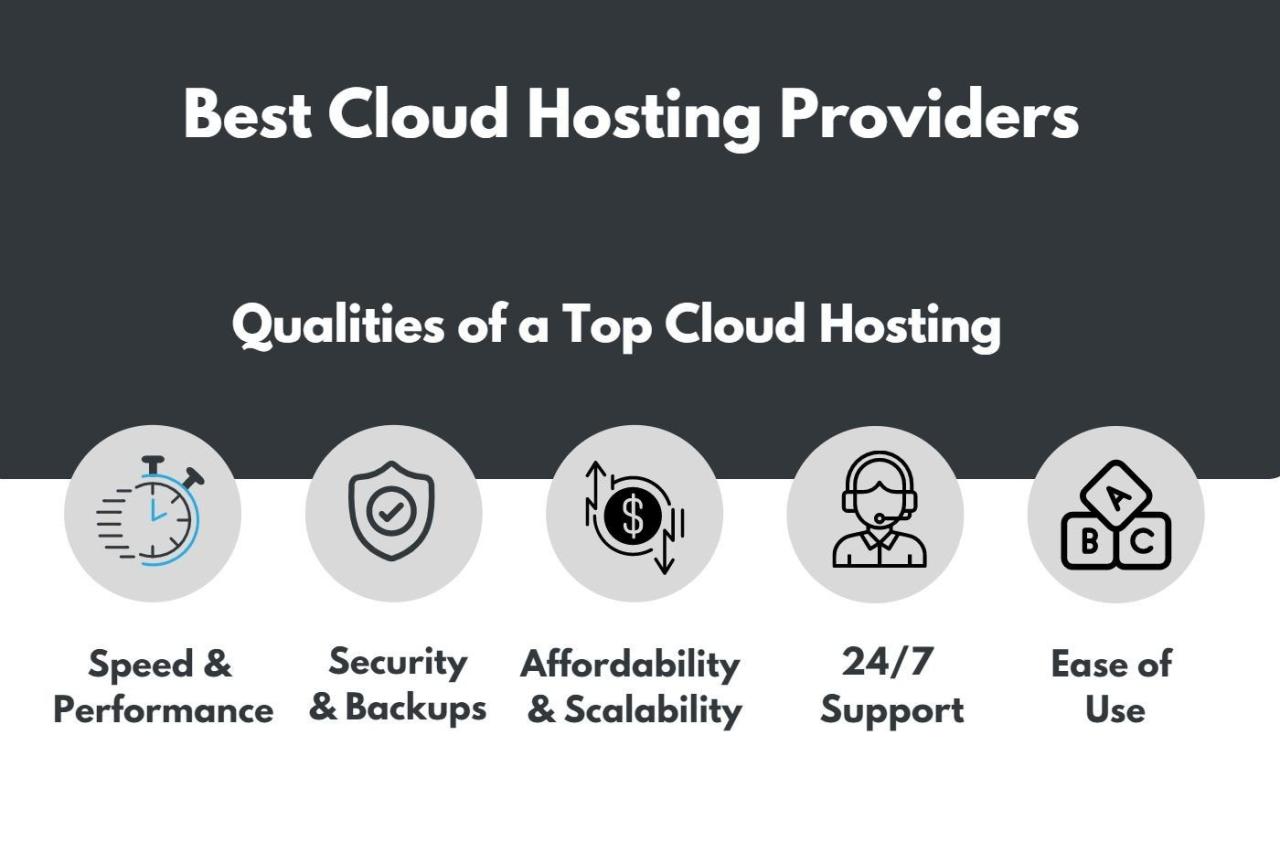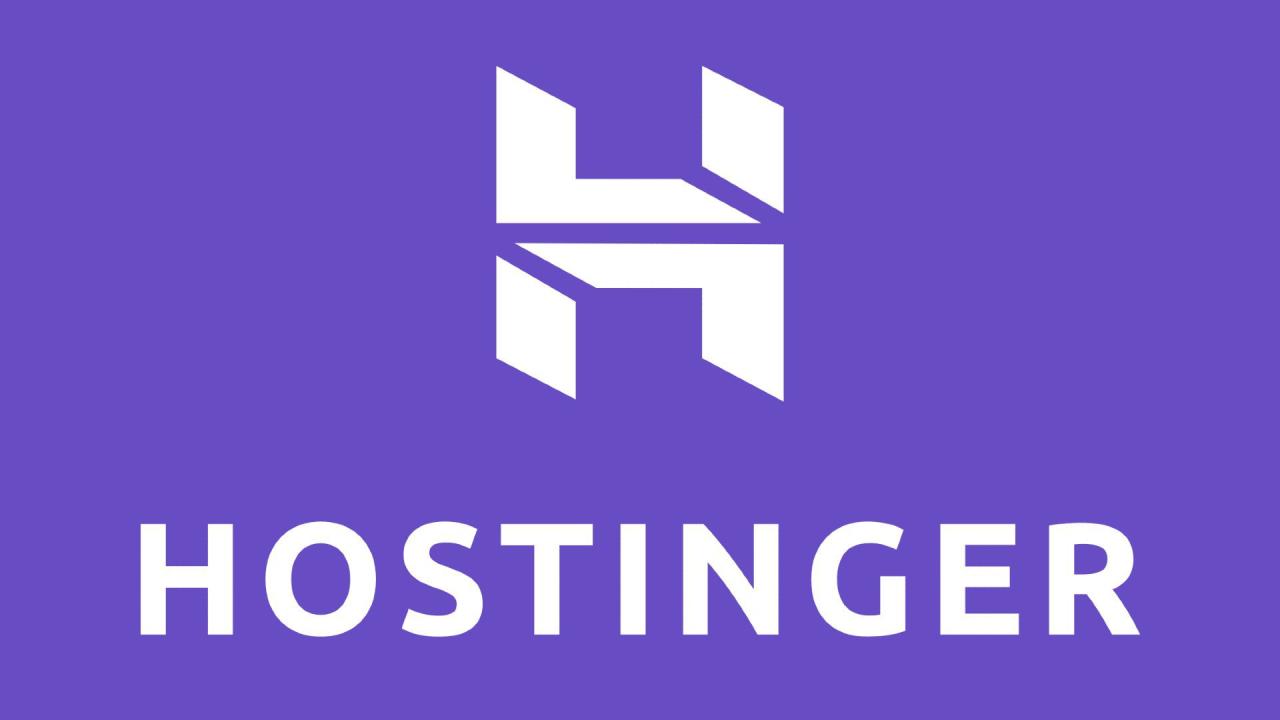Best cloud hosting companies are revolutionizing how businesses operate online. These companies offer a wide range of services, from basic shared hosting to powerful dedicated servers, catering to diverse needs and budgets. But with so many options available, choosing the right cloud hosting provider can be overwhelming. This guide delves into the key factors to consider when making your decision, providing insights into the top contenders in the industry.
We’ll explore the advantages of cloud hosting over traditional hosting, discuss different types of cloud hosting services, and examine essential features like storage space, bandwidth, security, and customer support. We’ll also analyze the performance and reliability of leading cloud hosting companies, their pricing strategies, and their commitment to customer satisfaction. By the end of this guide, you’ll have a clear understanding of what to look for in a cloud hosting provider and be equipped to make an informed choice that aligns with your business goals.
Case Studies and Real-World Examples

Cloud hosting has revolutionized how businesses operate, offering scalability, flexibility, and cost-effectiveness. To better understand the real-world impact of cloud hosting, let’s delve into some compelling case studies from leading cloud providers.
Case Studies from Top Cloud Hosting Companies
These case studies highlight the diverse ways businesses have leveraged cloud hosting to achieve remarkable results:
| Company Name | Industry | Challenges Faced | Solutions Implemented | Results Achieved |
|---|---|---|---|---|
| Netflix | Streaming Entertainment | Scaling to meet global demand, managing peak traffic, ensuring reliable content delivery. | Amazon Web Services (AWS) for infrastructure, content delivery network (CDN) for global reach, and data analytics for user behavior insights. | Increased global reach, improved streaming quality, reduced latency, and enhanced user experience. |
| Spotify | Music Streaming | Managing massive data storage and processing, ensuring high availability, and delivering personalized music recommendations. | Google Cloud Platform (GCP) for data storage, compute resources, and machine learning for personalized recommendations. | Improved music discovery, personalized recommendations, reduced infrastructure costs, and increased scalability. |
| Airbnb | Travel and Hospitality | Managing peak season demand, scaling infrastructure dynamically, and ensuring secure data storage. | Microsoft Azure for infrastructure, data storage, and security services, allowing for flexible scaling and secure data management. | Increased booking volume, improved customer experience, reduced infrastructure costs, and enhanced security. |
| Social Media and E-commerce | Handling rapid user growth, managing image storage and delivery, and personalizing content recommendations. | Google Cloud Platform (GCP) for data storage, image processing, and machine learning for content recommendations. | Increased user engagement, personalized recommendations, improved image quality, and reduced infrastructure costs. | |
| Slack | Communication and Collaboration | Ensuring high availability, managing real-time communication, and scaling to meet growing user base. | Amazon Web Services (AWS) for infrastructure, data storage, and communication services, enabling reliable and scalable communication. | Improved communication efficiency, increased user adoption, reduced downtime, and enhanced collaboration. |
Benefits of Cloud Hosting
Cloud hosting offers numerous advantages for businesses:
* Scalability: Cloud hosting allows businesses to easily scale their infrastructure up or down based on their needs, eliminating the need for upfront investments in hardware.
* Flexibility: Businesses can access and manage their resources from anywhere with an internet connection, enabling remote work and flexible operations.
* Cost-effectiveness: Cloud hosting eliminates the need for expensive hardware and maintenance, resulting in lower operating costs.
* Security: Leading cloud providers offer robust security measures, including data encryption, access controls, and disaster recovery services.
* Innovation: Cloud hosting provides access to cutting-edge technologies, such as artificial intelligence (AI) and machine learning (ML), enabling businesses to innovate and stay ahead of the curve.
Challenges of Cloud Hosting
While cloud hosting offers significant benefits, businesses should also consider potential challenges:
* Security concerns: Data breaches and security vulnerabilities are a constant concern in the cloud environment.
* Vendor lock-in: Businesses may face difficulties migrating to a different cloud provider if they are locked into a specific platform.
* Data privacy: Businesses must comply with data privacy regulations and ensure their data is handled securely in the cloud.
* Network connectivity: Reliable internet connectivity is crucial for cloud hosting, and disruptions can impact business operations.
* Cost optimization: Businesses need to carefully manage their cloud resources to avoid unnecessary expenses.
Future Trends in Cloud Hosting

The cloud hosting industry is constantly evolving, driven by technological advancements and changing user demands. Emerging trends are shaping the future of cloud hosting, offering new possibilities and challenges for providers and users alike.
Serverless Computing, Best cloud hosting companies
Serverless computing is a cloud-based execution model that allows developers to run code without provisioning or managing servers. This eliminates the need for server management tasks, such as scaling, patching, and monitoring. Instead, cloud providers handle the underlying infrastructure, allowing developers to focus on building and deploying applications.
Serverless computing offers several benefits, including:
- Cost-effectiveness: Users only pay for the resources they consume, making it ideal for applications with fluctuating workloads.
- Scalability: Serverless platforms can automatically scale up or down based on demand, ensuring optimal performance and resource utilization.
- Increased Developer Productivity: Developers can focus on application logic without worrying about infrastructure management, leading to faster development cycles.
Serverless computing is gaining traction across various industries, particularly in areas like web development, mobile applications, and data processing. Major cloud providers like AWS, Azure, and Google Cloud Platform offer serverless computing services, such as AWS Lambda, Azure Functions, and Google Cloud Functions.
Edge Computing
Edge computing brings computation and data storage closer to the source of data, reducing latency and improving performance for applications that require real-time data processing. Instead of relying solely on centralized data centers, edge computing utilizes distributed data centers and edge devices, such as smartphones, routers, and IoT devices, to process data locally.
Edge computing is particularly beneficial for applications that demand low latency, such as:
- Real-time analytics: Edge devices can process data locally, providing real-time insights for decision-making.
- Autonomous vehicles: Self-driving cars rely on edge computing to process sensor data and make real-time decisions.
- IoT applications: Edge computing enables IoT devices to process data locally, reducing network traffic and improving responsiveness.
Cloud hosting providers are integrating edge computing capabilities into their offerings, enabling businesses to deploy applications closer to their users and improve performance. Examples include AWS Outposts, Azure Stack Edge, and Google Cloud Edge.
Artificial Intelligence (AI)
AI is revolutionizing various industries, and cloud hosting is no exception. AI-powered tools and services are being integrated into cloud platforms to enhance efficiency, security, and user experience.
AI is being used in cloud hosting to:
- Optimize resource allocation: AI algorithms can analyze resource usage patterns and optimize resource allocation, improving efficiency and reducing costs.
- Enhance security: AI-powered security tools can detect and prevent threats in real-time, strengthening cloud security posture.
- Personalize user experience: AI can analyze user data and preferences to provide personalized recommendations and services, enhancing user satisfaction.
Cloud providers are investing heavily in AI research and development, integrating AI capabilities into their platforms to offer more intelligent and automated services. Examples include AWS AI Services, Azure Cognitive Services, and Google Cloud AI Platform.
Conclusion
In the ever-evolving digital landscape, choosing the right cloud hosting provider is paramount for businesses of all sizes. From enhanced scalability and flexibility to cost-effectiveness and security, cloud hosting offers a compelling alternative to traditional hosting solutions.
Factors to Consider When Choosing a Cloud Hosting Provider
This decision should not be taken lightly, as it directly impacts your website’s performance, security, and overall success. Several key factors must be considered when selecting a cloud hosting provider:
- Performance: Look for a provider with a proven track record of delivering high-speed performance and low latency. This ensures a seamless user experience and fast loading times.
- Scalability: Choose a provider that offers flexible scaling options, allowing you to easily adjust your resources as your website traffic and demands grow.
- Security: Security is paramount, so select a provider with robust security measures in place, including firewalls, intrusion detection systems, and regular security audits.
- Reliability: Opt for a provider with a high uptime guarantee, ensuring your website remains accessible to visitors at all times.
- Support: Choose a provider that offers responsive and reliable customer support, available 24/7 to assist with any technical issues.
- Pricing: Consider the provider’s pricing structure, ensuring it aligns with your budget and offers value for money.
Conclusive Thoughts: Best Cloud Hosting Companies

Choosing the right cloud hosting provider is crucial for any business seeking to establish a strong online presence. By considering factors like performance, security, scalability, and customer support, you can confidently select a company that meets your specific needs. Whether you’re a small startup or a large enterprise, the best cloud hosting companies offer the resources and support you need to thrive in today’s digital landscape. Remember, the key is to do your research, compare options, and choose a provider that aligns with your business objectives and budget.
When choosing the best cloud hosting companies, it’s crucial to consider the specific needs of your applications. If you’re working with complex 3D designs, a robust platform is essential. For instance, if you rely on cad mapper for your projects, you’ll need a provider that can handle the demanding processing power and storage requirements.
Ultimately, the right cloud hosting company will ensure your CAD software runs smoothly and efficiently, allowing you to focus on creating innovative designs.



